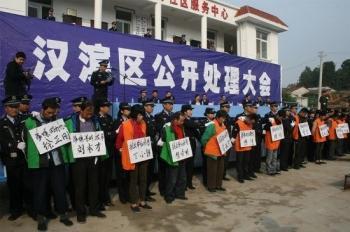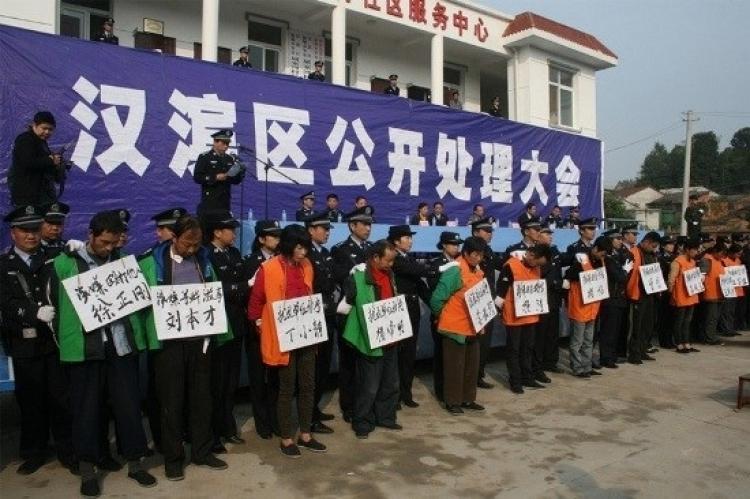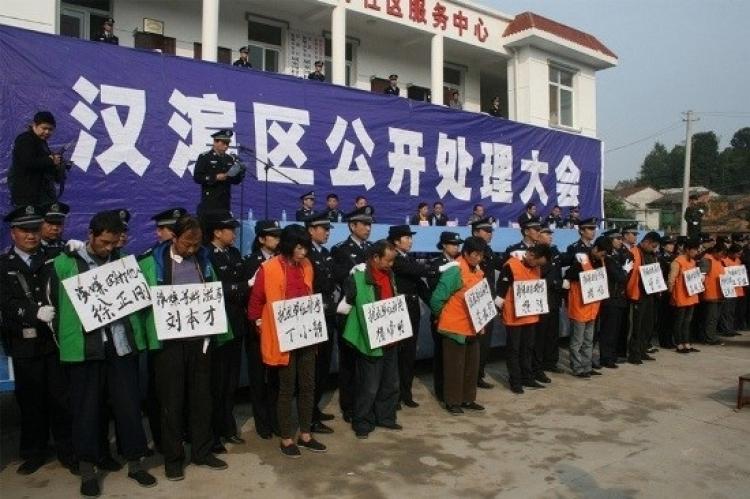In China, Public Shaming Rallies Recall Maoist-Era Tactics
Party officials in Shaanxi Province are taking up Cultural Revolution-style public shamings to punish petitioners.

Local government officials in Shaanxi Province held a public, Cultural Revolution-style shaming session to announce the verdicts against 17 villagers who petitioned the regime for their lost land. Wearing large signs with their names and the verdict, the Epoch Times Achives
|Updated:



